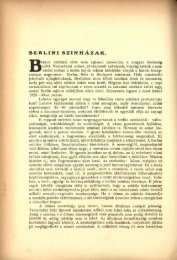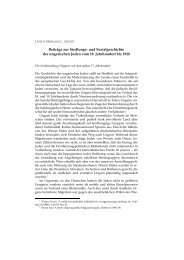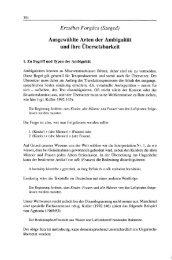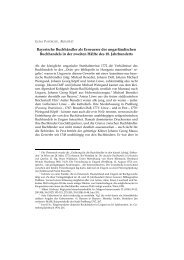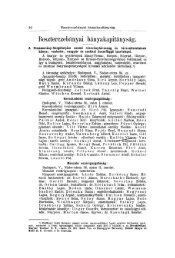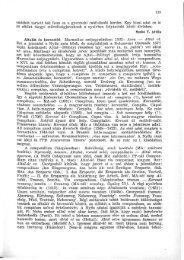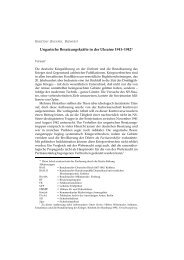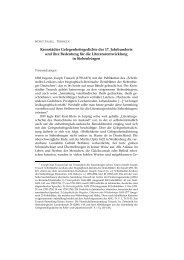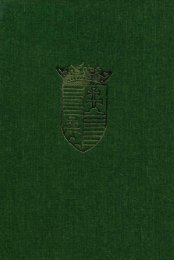hungarian studies - EPA - Országos Széchényi Könyvtár
hungarian studies - EPA - Országos Széchényi Könyvtár
hungarian studies - EPA - Országos Széchényi Könyvtár
Create successful ePaper yourself
Turn your PDF publications into a flip-book with our unique Google optimized e-Paper software.
132 REVIEWS<br />
a different poet (István Sinka, "My Mother Dances a Ballad"; Dezső Kosztolányi, "The Song<br />
of 'Kornél Esti'"; János Pilinszky, "On the Third Day"). As one might expect, none of the<br />
originals reads like an indifferent exercise in belated Victorian poesy. I do not mean to suggest<br />
that a translation should serve as a mirror to its original in every respect. To have any hope of<br />
avoiding the foibles of the purely academic or the amateur, a translation of a poem must succeed<br />
as a poem in its own right. One that fails in this cannot be rescued by literal accuracy or<br />
harmed significantly by excessive freedom.<br />
Makkai renders Kölcsey's poem in an irregular mixture of meters that skirts the iambic<br />
closely but never quite gets there. In too many places (and this is typical of Makkai's versification)<br />
the translation borders on prose without much novelty or success. Despite these failings,<br />
"Zrinyi's Second Song" manages to preserve the stanza form and rhyme of the original. Makkai<br />
deserves commendation for his fidelity in this (a laudably consistent element in his approach<br />
to translation). More often than not, the regular meter and rhyme of originals get pushed aside<br />
by translators in favor of free verse, which is easier to pull off in some senses and in any case<br />
more prevalent in our poetry today. But Makkai is not a remarkable metrist in English, and,<br />
though he sometimes manages to fill out the form, his substitutions are so frequent and so slack<br />
that they regularly call into question his handle on the norm he means to approach. On the<br />
whole, his grasp of metrics impresses one as nearly competent. His verse tends to split the<br />
difference between the accentual-syllabic and the purely syllabic without being very much at<br />
home in either. His translation of Mihály Csokonai Vitéz's "Még egyszer Lillához" ("Once<br />
More to Lilla") provides as good an example as any of his dilemma as a prosodist. Makkai<br />
executes the translation in an ornate metrical form that reproduces the letter of Csokonai's<br />
original reasonably well. Like so many of his efforts, it looks like the original on the page, but<br />
(again like so many) it does not read like the original. There is no trace here of the sound and<br />
spirit of Csokonai's versification. Makkai's version is cold and lifeless and its rhythmic effects<br />
remarkable only in their combination of unsettling jerkiness and listless meandering. Since<br />
Makkai's translations of metrical poems rarely establish a pattern from which to deviate, it<br />
may be misleading to speak of their substitutions. It would be more accurate in many cases to<br />
regard substitution as the rule in his metrics, which makes extended prosodie analysis of his<br />
work fruitless. In any case, Makkai's failures seldom stem from errant versification alone.<br />
When the translations fail (as they often do), they fail in their entirety as independent poems.<br />
Taken as a whole, Makkai's translations leave me as they found me, only bewildered and<br />
with a nagging sense of injustice. I think this effect results in part from their artless eclecticism,<br />
a quirky blend of the overworked, affected highbrow and the informal. Makkai seems to admire<br />
contractions in any form and context and regularly forces them on the reader where<br />
common usage and common sense would advise against it. ("You, who're alive now", p. 590;<br />
"How diff rent rang the thunder of Hungary", p. 176; "You can't teach your nation, your<br />
verse's just a caper", p. 124.) I suspect this compulsion may stem from a notion that the facile<br />
prosodist makes verse by whatever means possible. I agree entirely, Makkai has certainly<br />
shown that a bad line can be made to scan through inventive use of punctuation. Unfortunately,<br />
he has also demonstrated that such lines invariably remain bad and actually tend to be laughably<br />
bad after all his tinkering. Add to this Makkai's weakness for the pseudo-folksy and studied<br />
colloquial ("I must sob here, sob a-crying, / and what I can't, Nymph, help! I've been atrying",<br />
p. 163) and you have a combination that makes for fitful reading, each translation a<br />
haphazard tug-of-war between the Erstwhiles and the Y'alls with neither gaining sufficient<br />
advantage in the end to hold the reader's attention. After trudging through this second-hand<br />
landscape with its language relics and derelict constructions and its open season on the apos-


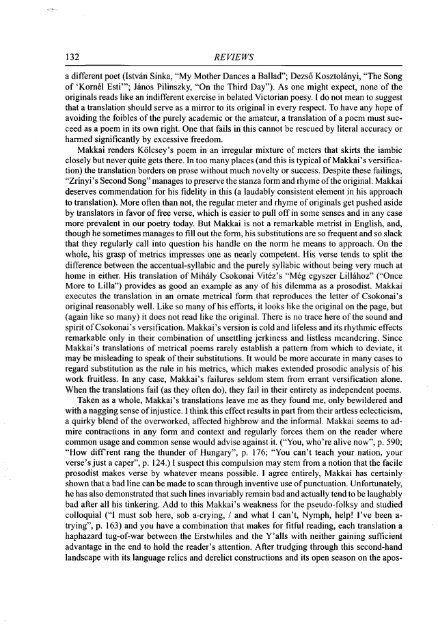
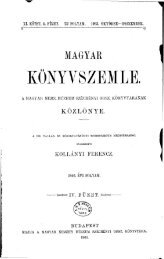
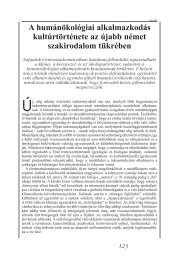
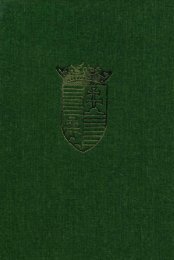
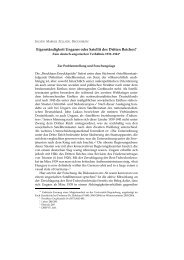
![Letöltés egy fájlban [36.8 MB - PDF] - EPA](https://img.yumpu.com/23369116/1/172x260/letoltes-egy-fajlban-368-mb-pdf-epa.jpg?quality=85)
